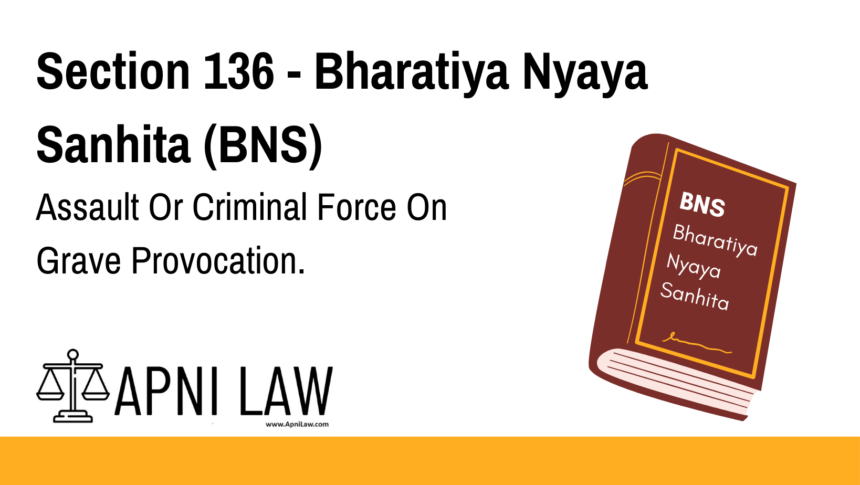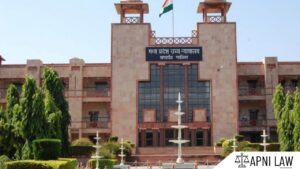Code: Section 136 BNS
Whoever assaults or uses criminal force to any person on grave and sudden
provocation given by that person, shall be punished with simple imprisonment for a term
which may extend to one month, or with fine which may extend to one thousand rupees, or
with both.
Explanation.—This section is subject to the same Explanation as section 131.
Explanation of Section 136 BNS
Section 136 of the Bharatiya Nyaya Sanhita (BNS) deals with assault or the use of criminal force under the influence of grave and sudden provocation. This provision recognizes that in certain situations, a person may act impulsively due to intense provocation.
Key Provisions:
- Existence of Grave and Sudden Provocation:
- The provocation must be both grave and sudden.
- If the offender had time to cool down, this section does not apply.
- Punishment Under the Law:
- Simple imprisonment up to 1 month, or
- Fine up to ₹1,000, or
- Both imprisonment and fine.
- Important Legal Considerations:
- The punishment is relatively mild compared to Section 131 BNS, which deals with assault without provocation.
- Malicious intent is not required, but the reaction must be directly caused by provocation.
Illustrations of Section 136 BNS
Example 1: Heated Argument Leading to a Slap
X and Y have a sudden heated argument. In the heat of the moment, Y slaps X.
👉 Y is liable under Section 136 BNS as the act was committed under grave provocation.
Example 2: Provoked Shoving in a Market
A shopkeeper insults a customer, leading the customer to push him in anger.
👉 This falls under Section 136 BNS as there was grave and sudden provocation.
Example 3: Time Delay Nullifying Provocation
A insults B in the morning. In the evening, B finds A and punches him.
👉 B is NOT protected under Section 136 BNS because there was enough time to cool down.
Common Questions and Answers on Section 136 BNS
1. What is the maximum punishment under Section 136 BNS?
The maximum punishment is one month of simple imprisonment, a fine of up to ₹1,000, or both.
2. What qualifies as “grave and sudden provocation”?
- The provocation must be severe enough to cause a loss of self-control.
- It must be immediate—if the accused had time to think, this section does not apply.
3. Can this section be used as a defense in assault cases?
Yes, grave and sudden provocation can reduce the severity of punishment. However, it does not justify violence.
4. What is the difference between Section 136 BNS and Section 131 BNS?
- Section 131 BNS punishes assault without provocation (up to 3 months in jail).
- Section 136 BNS applies if grave and sudden provocation exists (up to 1 month in jail).
5. How can a victim report an offense under this section?
- Visit the nearest police station and file an FIR.
- Provide evidence like CCTV footage, eyewitness accounts, or medical reports.
- Seek legal advice for further action.
Conclusion
Section 136 BNS recognizes human impulsiveness and provides a lesser punishment for assaults committed due to grave and sudden provocation. However, it still ensures accountability for such actions.
For more legal updates and expert guidance, visit ApniLaw! 🚀











